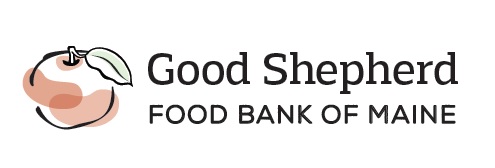The Waterville Food Bank was able to fundraise for a new van a couple years ago. We asked them to share their experience and fundraising plans:
Q: What were your fundraising strategies for getting your van? How long did it take you to raise enough money?
A: Our fundraising strategies for getting the van started when a donor organization asked us what we needed from them to help us. The Waterville Women's Club Contemporary Group had been volunteering at the food bank as a group for about six months when they approached us. This was shortly after we started doing retail store pickup. We told them we wanted to purchase a van to cut down on the wear and tear on volunteer vehicles and more safely transport the food which was often being transported in open pickup trucks. It was also somewhat of an ergonomic nightmare for our largely older volunteer base to load and unload those vehicles.
One of our younger board members suggested that we create a Go Fund Me page and we then launched our Van-quish Hunger Campaign. We created a specific brochure for the campaign explaining what we do and why we needed a commercial delivery vehicle. We offered 20 Logo Level Sponsors a prominent display of their logo on the van in return for a donation of $500 or more. We took out a small loan with very favorable terms from a local bank which had already given us $1,000. We paid off the loan six months later.
We felt so good about not having to pay excise tax on the van every year that we purchased a vanity plate "NOHNGR". This was partially because we thought it might take a while to get the van signage and wanted to identify it somehow. Around this same time we decided to get a new logo for the Food Bank and the van.
Q: How has the van increased your healthy options for patrons?
A: The van has ensured that the retail pickup food is transported in a food safe manner. It was hard to wrap food in blankets when you are driving open back pickup trucks.
Q: How was the van helped with volunteer workload?
A: The van has helped the volunteers in several respects. It provides us with a sense of pride and identity. We really don't own much of anything and are fortunate to live in a rent free space, so aside from freezers, refrigerators and U-boats we don't own much.
 The van has excellent ergonomic value. It is fairly low to the ground and has lots of head room. You can walk upright in the van even if you are over 6' 2". Senior citizens lifting 30 to 50 pound banana boxes while bent over did not seem like a good idea. We frequently deliver fresh food to other members of Good Shepherd Food Bank in Waterville and the van sees lots of use and exposure through those deliveries.
The van has excellent ergonomic value. It is fairly low to the ground and has lots of head room. You can walk upright in the van even if you are over 6' 2". Senior citizens lifting 30 to 50 pound banana boxes while bent over did not seem like a good idea. We frequently deliver fresh food to other members of Good Shepherd Food Bank in Waterville and the van sees lots of use and exposure through those deliveries.Q: How many households and individuals are you currently serving?
A: Last year we served 790 unique families. Some of those families come to us as often as every 14 days. Some come less frequently.
The Waterville Food Bank is open Monday – Thursday, serving Waterville and surrounding towns. A vital hunger relief organization in their community and a valued partner of Good Shepherd Food Bank.
.

